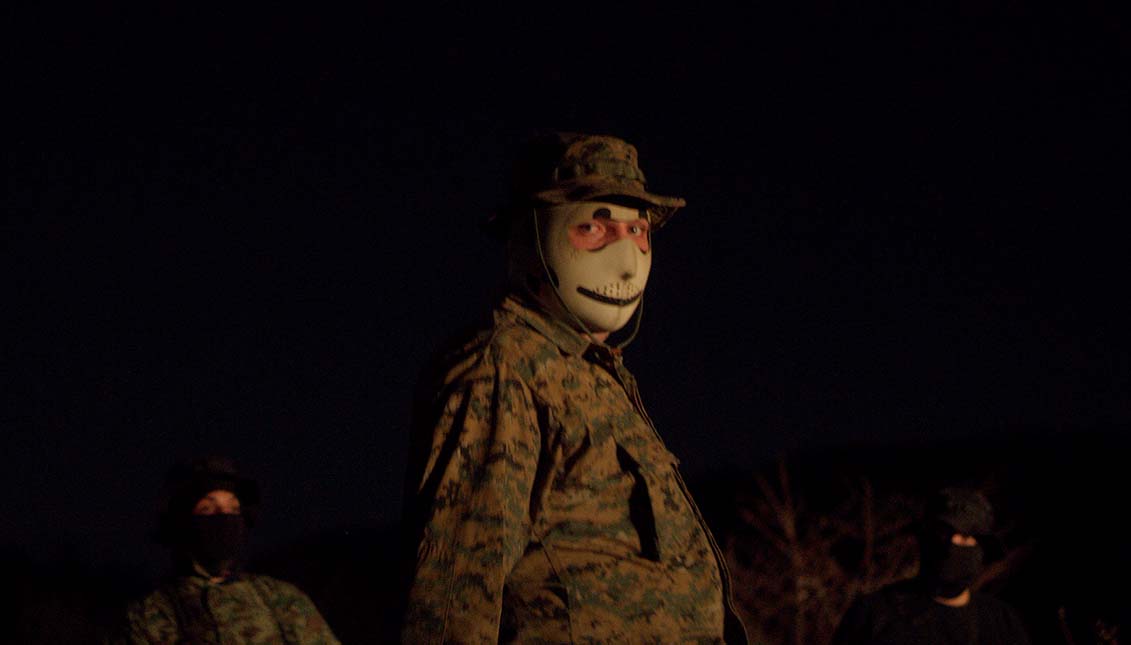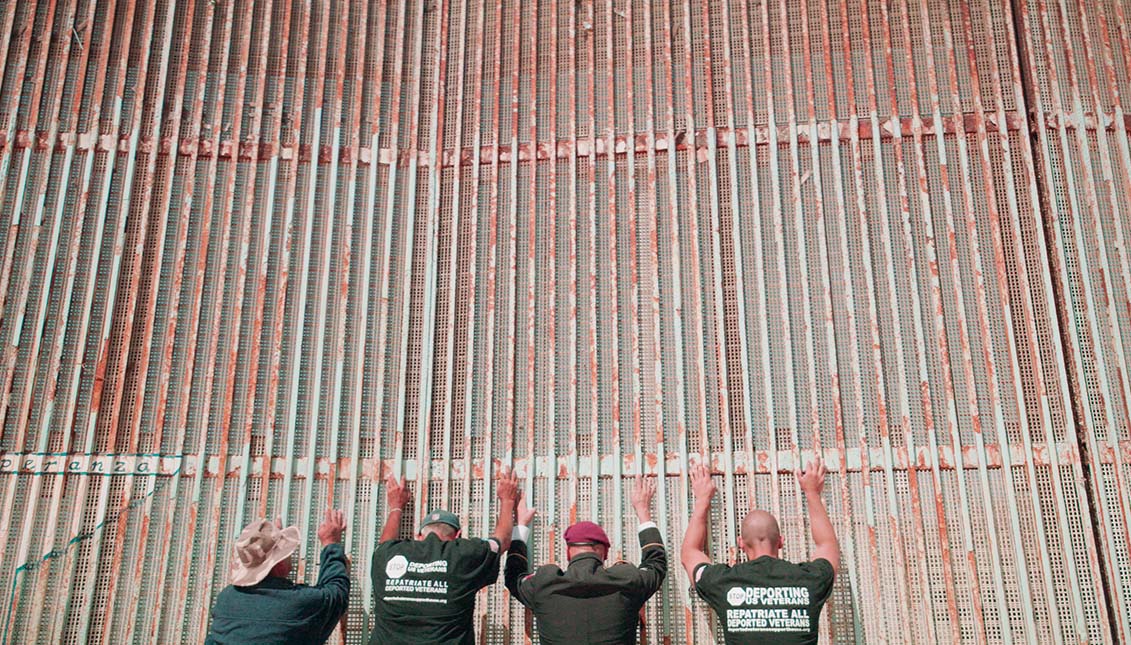
Cartels and forced exile: How U.S. veterans deported to Mexico live
The documentary "Ready for war" focuses on the sad fate of the thousands of deported U.S. war veterans who are at the mercy of drug cartels.
The day he left prison he had an immigration van waiting for him at the door. "If they'd come later, you'd go home," the guards told him. No one thought it was fair. Not the lawyers he spoke to, not the judges who refused to take the case. No, it couldn't be more than a mistake, everyone knows that veterans can't be deported, can they?
"My grandfather was an American. I was born in Mexico, like my father, but since I was a little boy I have lived in the United States; I have studied primary and secondary in Chicago; I married and had my daughter in this city, and I also enlisted in the army to serve my country. Then 9/11 happened, I was assigned to Afghanistan twice and when I returned home I started to feel weird. I couldn't be surrounded by people, they gave me sweats, and although my family pressured me to go to the veterans' hospital, I took refuge in drugs and alcohol," says Miguel Perez, who spent seven and a half years in prison for being in the wrong place at the wrong time.
And yet, he warns that ironically it was the best thing that could happen to him: "In prison, I received medical treatment and discovered my vocation: I helped other prisoners with their studies."
Miguel is one of the protagonists of "Ready for War," the documentary directed by Andrew Renzi that premieres tomorrow and follows the lives of veterans deported to Mexico after having served in active combat for the United States. It is a reality that happened even before the 2016 elections which gave Trump victory, but it has accelerated in recent years due to President Trump's anti-immigrant policies.
"The most surprising thing is that all of the deported military would gladly return to serve in the U.S. military, regardless the way they have been treated," Andrew Renzi.
Andrew traveled with his producer to Tijuana to meet Héctor Barajas, one of the soldiers who starred in the documentary and has been running a destination center for years to help thousands of deported veterans gain citizenship while they continue to arrive, most of them deceived by members of Immigration and Customs Enforcement (ICE).
"After learning Hector's story, we visited journalist Luis Chaparro in Juarez and began meeting with deported veterans who had been forced to work for drug cartels because of their war training. And we knew we had to make this movie," Renzi said.

"No one knows this is happening to a lot of people. And the most surprising thing is all of them would happily serve in the U.S. Army again regardless of how they've been treated," continued the director, who spent more than two years working on the project in cities like Juarez and Tijuana, living situations, as he himself confesses, that are quite dangerous.
And also incredible:
RELATED CONTENT
"We often had to prove that we weren't from the DEA and that led to tense moments. Once a narco asked me to prove that I wasn't an undercover agent and he threatened to kill us if I didn't; I took out the phone and looked for me on Google and found an old photo in which I appeared with Richard Gere. I guess the sicario had seen 'Pretty Woman' because he smiled and said, 'Hey, I know that guy!'"
In Matamoros, in the Mexican state of Tamaulipas, there is a Central American refugee camp where more than two thousand people live in cramped living conditions awaiting political asylum. Tamaulipas is a drug trafficker's natural environment; every day gunmen are shot down and there are attacks and shootings between the army and the police with the cartels of the northwest.
Just there, in Matamoros, across the Texas border, Miguel Perez was transferred in March 2018 after spending a year and a half in a detention center. But he was, as he himself says, "conned." And it wasn't the only thing that happened...
"In the detention center I had suffered many violations of my rights: they wouldn't give me the right medication, they wouldn't let my doctor in; they cut off the water in my cell to beg them... And one day, after a lot of fighting with my lawyer, they made me swear citizenship. But it was a lie, after two hours I was denied citizenship for the same crime I had already paid for, and in a week I was also deported, even though I knew it was a risk for me."

Forcibly expatriates, many of the deported veterans suffering from post-traumatic syndrome as a result of years of combat. According to Miguel Pérez, they live trying to hide their true identity in the hope of eluding the cartels. "They pass themselves off as tourists, they are visiting, even though some have been fighting for up to 15 years to return to the U.S."
"We left our families to go to war, and they suffered. We returned with mental problems, and they continued to suffer. And then came deportation.", he stated.
With a stunning photographic direction by Jeff Peterman that totally eludes the traditional aesthetics of the documentary and resembles the style of a thriller—"We wanted the audience to forget what they were watching and when they came back to earth, reality hit them harder," said the director—"Ready for war" also takes us to the bloody war between two cartels in Juarez, and the testimony of a veteran who fell into drug traffickers' hands and hides behind a mask.
"We left our families to go to war, and they suffered. We returned with mental problems, and they continued to suffer. And then came deportation. The worst thing after fighting for your country is to be separated from your relatives. But I don't feel betrayed by my country; I fought for it, even if the law isn't perfect," concludes Miguel Perez, who became a U.S. citizen this September. Now back in Chicago, Perez works to help other veterans return home.











LEAVE A COMMENT:
Join the discussion! Leave a comment.